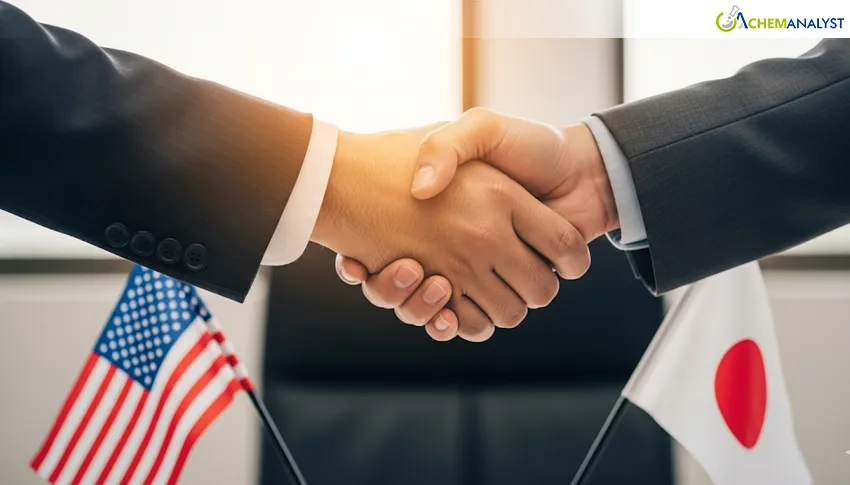Welcome To ChemAnalyst

The deal, which lowers tariffs on Japanese autos, is aimed at boosting US manufacturing and agriculture, while addressing the trade deficit.
U.S. President Donald Trump on Thursday signed an executive order officially implementing a bilateral trade agreement with Japan, a move hailed by the White House as ushering in a "new era" of economic relations between the two nations. The agreement, which has been in the works for months, sets a new framework for trade, investment, and market access.
The core of the deal is a new tariff structure. The executive order establishes a baseline 15% tariff on nearly all Japanese imports entering the United States. This includes a significant reduction for Japanese automobiles and auto parts, where the rate drops from 27.5% to 15%. This change is a major win for Japanese automakers, many of whom have been under pressure from the existing tariffs. According to the order, the tariff relief for automobiles will take effect within seven days of publication in the Federal Register and will apply retroactively to goods shipped from August 7, 2025.
Beyond tariffs, the most striking feature of the pact is Japan's commitment to a massive $550 billion investment in the United States. This "unprecedented" pledge, as described by the White House, will be channeled into projects selected by the U.S. government. The investments are intended to create thousands of jobs, strengthen domestic manufacturing, and bolster critical sectors such as aerospace, semiconductors, pharmaceuticals, and infrastructure.
The agreement also delivers key market openings for American producers. Japan has agreed to ramp up its annual purchases of US-made commercial aircraft and defense equipment. On the agricultural front, Tokyo will increase its rice imports by 75% under its Minimum Access scheme and commit to yearly purchases of American farm goods—including corn, soybeans, fertilizer, and bioethanol—totaling an estimated $8 billion. This is a significant boon for the American agricultural sector.
The signing of the executive order coincided with the visit of Japan's lead trade negotiator, Ryosei Akazawa, to Washington for a new round of talks. Akazawa's presence underscores the ongoing nature of the bilateral discussions, even as the primary components of the deal are formalized.
The trade pact's finalization comes at a politically sensitive time for Japanese Prime Minister Shigeru Ishiba, who is facing mounting internal pressure and a potential leadership challenge within his ruling party. While finalizing the deal could provide a much-needed boost, analysts suggest that domestic discontent over the economy and recent political setbacks will continue to be a challenge for his leadership.
We use cookies to deliver the best possible experience on our website. To learn more, visit our Privacy Policy. By continuing to use this site or by closing this box, you consent to our use of cookies. More info.
